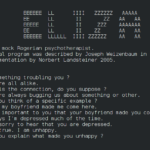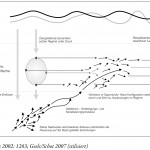19. Juli 2017
Die diesjährige Ausgabe der seit 1959 durchgeführten Allensbacher Markt- und Werbeträgeranalyse (AWA) zu den Konsum- und Mediengewohnheiten der deutschen Bevölkerung (23.356 Befragte insgesamt; Herbst 2016 / Frühjahr 2017; Grundgesamtheit: deutschspr. Bevölkerung ab 14 J.) ist erschienen. Einige Ergebnisse:
(Mobile) Internetnutzung
- 90 Prozent der 16- bis 69-Jährigen nutzten das Internet (2010: 77 Prozent); damit folgt die Verbreitung des Internets im Groben in seiner Geschwindigkeit der Verbreitung des Fernsehens in der BRD ab 1956.
- Das tägliche Zeitbudget für die Mediennutzung insgesamt ist für die Bevölkerung ab 14 Jahren im Schnitt leicht rückläufig (2005: 10 h, 2017: 9:26 h).
- Anfang 2017 hatten 68 Prozent der Befragten und 94 Prozent der unter-30-jährigen Befragten ein Smartphone zur Verfügung (dafür gaben 14 Prozent der Haushalte an, keinen Festnetzanschluss mehr zu haben).
- 51 Prozent der Befragten gaben an, das Internet »ständig, fast die ganze Zeit, mehrmals täglich« zu nutzen. 36 Prozent fanden es wichtig, immer erreichbar zu sein; 31 Prozent verschicken lieber Textnachrichten als zu telefonieren.
- Zum Nutzerkreis von »sozialen Netzwerken« gehörten 77 Prozent der 14- bis 29-Jährigen, 56 Prozent der 30- bis 44- und 31 Prozent der 45- bis 59-Jährigen.
23. Juni 2017
Der Reuters Institute Digital News Report 2017 ist erschienen und bietet wie in den Jahren zuvor einen Überblick zur weltweiten Rezeption von Nachrichtenangeboten und Nutzung der unterschiedlichen Medienkanäle in der individuellen Versorgung mit tagesaktuellen Informationen: Hier die wichtigsten Links dazu:
Kernergebnisse: Das Vertrauen in journalistische Nachrichtenangebote ist mit 40 Prozent über alle Länder hinweg weiterhin niedrig; in der BRD liegt dieser Wert bei 50 Prozent. Hierzulande und in vielen anderen europäischen Ländern ist die Social-Media-Nutzung in der News-Rezeption rückläufig (nicht aber in den USA). Die aktive Partizipation im Web verharrt im Nachrichtenbereich auf geringem Niveau. Sascha Hölig (Hans-Bredow-Institut für Medienforschung) begründet das wie folgt:
»Es ist nur ein ganz kleiner Teil der Bevölkerung, der Nachrichten teilt und kommentiert, nur zehn Prozent der Nutzer von sozialen Medien. Es ist ein verbreitetes Zerrbild, dass die Menschen alles diskutieren und teilen möchten. Das Interesse daran besteht gar nicht. Man sollte nicht unterschätzen, wie viele die klassische Lean-Back-Situation vor dem Fernseher vorziehen, wenn sie von der Arbeit nach Hause kommen.«
2. Juni 2017
Anfang Juni sind die ersten Teile des State of the News Media Report 2017 erschienen, der seit 2004 durch das Pew Research Center herausgegeben wird und einen Überblick über die sozioökonomischen Entwicklungen im US-amerikanischen Journalismus gibt.
Weiterlesen »
2. Mai 2017
Ende April hat Facebook den Bericht »Information Operations and Facebook« veröffentlicht (Autoren: Jen Weedon, William Nuland, Alex Stamos). Darin diskutiert das Unternehmen zurückliegende ›Informationsfeldzüge‹ (etwa im US-Wahlkampf) und inwiefern neuartige Analysetechnologien diesbezüglich Abhilfe schaffen könn(t)en:
»Civic engagement today takes place in a rapidly evolving information ecosystem. More and more, traditional forums for discussion, the exchange of ideas, and debate are mirrored online on platforms like Facebook – leading to an increase in individual access and agency in political dialogue, the scale and speed of information consumption, as well as the diversity of influences on any given conversation. […] The overuse and misuse of the term ›fake news‹ can be problematic because, without common definitions, we cannot understand or fully address these issues. […] We’ve adopted the following terminology to refer to these concepts:
Weiterlesen »
25. April 2017
Im aktuellen Heft der Media Perspektiven findet sich ein Artikel von Camille Zubayr und Heinz Gerhard, der sich auf der Basis von Daten der AGF sowie GfK mit den inländischen Fernsehgewohnheiten und -Reichweiten beschäftigt. Die präsentierten Erhebungsergebnisse führen vor Augen: Das lineare Fernsehen war 2016 mit durchschnittlich 223 Minuten täglicher Nutzungsdauer (über alle Altersgruppen hinweg) nach wie vor mit Abstand das meist genutzte Alltagsmedium.
 Weiterlesen »
Weiterlesen »
14. April 2017
In dieser Woche ist der Text »The Renaissance of Techno-Utopianism as a Challenge for Responsible Innovation« von Sascha Dickel und mir im Journal for Responsible Innovation erschienen (kostenfreier Volltext ist für die ersten 50 Abrufenden).
Responsible research and innovation aspires to anticipate and assesses potential implications of innovations. Hence, emerging technologies are a crucial issue for this mode of foresight and governance. The case of nanotechnology demonstrated that discourses on those emerging technologies are increasingly shaped by techno-utopian narratives. We argue that these narratives are here to stay, because they are an expression of a contemporary medialization of science and technology. Since the RI community can neither ignore nor escape these techno-utopian narratives, it might engage in a hermeneutic reading of these visions as performative fiction. We use the case of desktop 3D printing to demonstrate in what way an analysis of techno-utopianism is able to reveal how responsibility for innovation gets redistributed.
Zum Text »
9. Februar 2017
In der Berliner Debatte Initial 27(4) ist in diesen Tagen der Artikel »Big Data: Informatisierung der Gesellschaft 4.0« erschienen. Nachfolgend einige kleine Ausschnitte aus dem Schlusskapitel.
In der Langzeitbetrachtung wird deutlich, dass sich im aktuellen Diskurs um die gesellschaftlichen Folgen von ›Big Data‹ viele der dystopischen und utopischen Erwartungen widerspiegeln, die bereits seit den 1960er-Jahren an digitale Massendaten und Datenfluten geknüpft worden sind […]. Nach der Emergenz der Idee einer Informationsgesellschaft im Kontext der akademischen Urbarmachung von Computern in den 1960er- und 1970er-Jahren (1. Phase), einer ersten Welle der Informatisierung der alltäglichen Lebenswelt in den 1980er- und 1990er-Jahren (2. Phase) sowie dem Aufstieg der Datenkonzerne und der zeitgleichen diskursiven Betonung der ermöglichenden Eigenschaften der Plattformen im Web 2.0 in den 2000er-Jahren (3. Phase) rücken seit 2010 explizit Massendaten sowie die Fragen nach ihrer Kontrolle und Auswertung in den Mittelpunkt der gesellschaftsweiten Diskussion um neue Informations- und Kommunikationstechnologien (4. Phase).
Weiterlesen »















